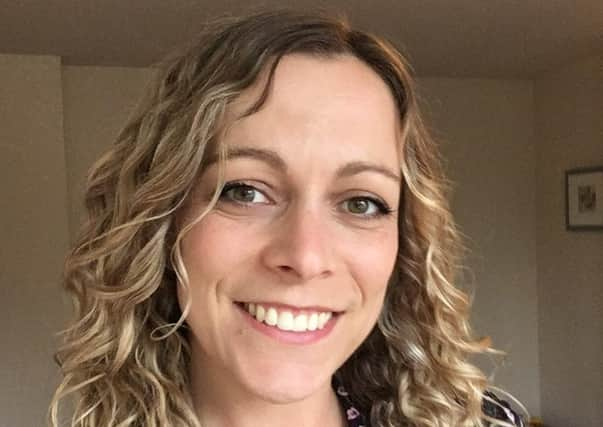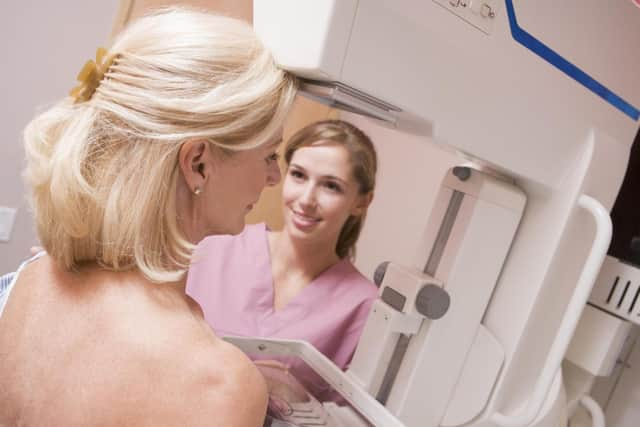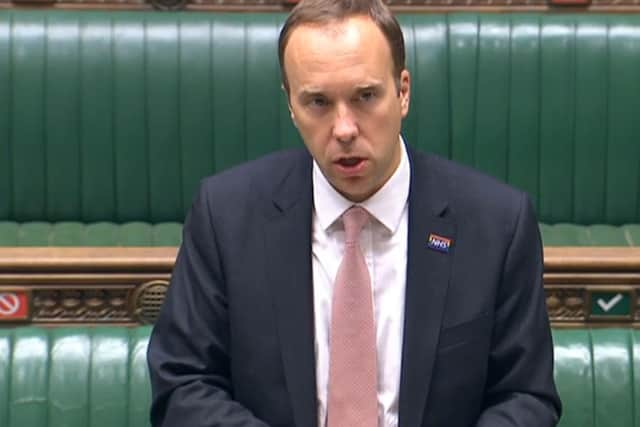Mum’s cancer diagnosis was missed until it was too late; others should not suffer our heartbreak – Dr Sorrel Bickley


My mum died of sarcoma cancer eight years ago – before she even had the chance to hear her diagnosis.
So little is known about sarcoma, among the public and health professionals alike that in 2020, getting a timely and accurate diagnosis is still a needlessly complicated and fraught process for the 5,300 people diagnosed every year in the UK.
Advertisement
Hide AdAdvertisement
Hide AdSarcoma is a cancer of the bone and soft tissue, and is one of the least understood forms of cancer.


In the intervening years since my mum’s death, not enough has changed.
My family and I first knew that something was wrong when my mum hurt her arm lifting our family dog out of the car.
She heard a crack, and in a lot of pain, when to see her GP.
Advertisement
Hide AdAdvertisement
Hide AdThe doctor told her that it was likely nothing to worry about, something I hear all too often working at Sarcoma UK.


She was one of the 39 per cent of sarcoma patients who were told their symptoms were not serious, or were started on a treatment for another condition the first time they sought help from a health professional about their symptoms.
My mum was still in a lot of pain come her 69th birthday, so went with my dad to A&E, thinking her arm might be broken.
The doctors became concerned about why her arm might have broken doing something so minor.
Advertisement
Hide AdAdvertisement
Hide AdAfter a few tests and a physical exam, they found a large mass in her abdomen and tumours in her arm, which had weakened her bone. She had cancer.
We were told it was a rare cancer and that it was terminal but we still didn’t have an accurate diagnosis.
Her health deteriorated very quickly and when I went to visit her in hospital, she wasn’t able to communicate anymore.
She died that evening with me, my dad and my sisters around her.
I didn’t get the chance to say goodbye.
Advertisement
Hide AdAdvertisement
Hide AdIf my mum been given an accurate diagnosis earlier, my family’s story might have been different.
Even if they hadn’t been able to treat her cancer, we might have had more time to spend together and understand more about what was wrong.
Today, one in three patients and their families still face an agonising wait of six months or more for an accurate diagnosis after first seeking help – time they can ill afford.
My mum’s cancer was missed due to poor public and health professional awareness of the key symptoms, such as a lump that’s growing quickly or bone pain.
Advertisement
Hide AdAdvertisement
Hide AdI think she may have known that something was wrong for some time, but didn’t seek help because she didn’t spot the signs.
Lack of awareness means that sarcoma is often diagnosed at late stages which, put simply, is costing lives.
The later a sarcoma is diagnosed, the fewer options there are available for treatment and the higher the chance of that treatment not working.
I lost my mum very quickly, just a month after finding out she had cancer.
Advertisement
Hide AdAdvertisement
Hide AdWe only found out her cancer was sarcoma when we went to the hospital to collect her death certificate.
But today the survival rate for sarcoma remains low, with only 55 per cent living for more than five years.
Sarcoma doesn’t just affect the patient; like all cancer, it has the power to shatter the lives of those they love.
I’m now proud to be part of the team at Sarcoma UK and to have worked on our newest report Delays Cost Lives.
Advertisement
Hide AdAdvertisement
Hide AdWe’re calling for health professionals to receive more education about sarcoma, and for more people need to be aware of the key symptoms.
Red flag referrals for further investigation need to be made as soon as cancer is suspected.
No one should find themselves in my mum’s position.
By making changes today, I believe we can ensure that more people are diagnosed as early and as accurately as possible.
Dr Sorrel Bickley is Director of Research and Policy at Sarcoma UK.
Support The Yorkshire Post and become a subscriber today.
Advertisement
Hide AdAdvertisement
Hide AdYour subscription will help us to continue to bring quality news to the people of Yorkshire. In return, you’ll see fewer ads on site, get free access to our app and receive exclusive members-only offers.
So, please - if you can - pay for our work. Just £5 per month is the starting point. If you think that which we are trying to achieve is worth more, you can pay us what you think we are worth. By doing so, you will be investing in something that is becoming increasingly rare. Independent journalism that cares less about right and left and more about right and wrong. Journalism you can trust.
Thank you
James Mitchinson
Comment Guidelines
National World encourages reader discussion on our stories. User feedback, insights and back-and-forth exchanges add a rich layer of context to reporting. Please review our Community Guidelines before commenting.